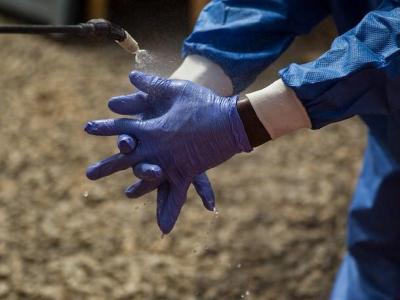In a development that could put flu diagnosis in the hands of consumers, the Biomedical Advanced Research and Development Authority (BARDA), part of the US Department of Health and Human Services, yesterday announced support for two companies to advance their work on over-the-counter tests.
BARDA will provide $14 million to Cue Health, based in San Diego, and $10 million to Diassess, based in Emeryville, Calif., to further development on tests for influenza A and B. The agreement with Cue Health can be extended for up to a total of $30 million over 60 months and the deal with Diassess could be extended for a total of $21.9 million over 60 months.
Both companies are working on inexpensive, easy-to-use tests for consumers that can give a result within 25 minutes. Both employ mobile technology that streamlines a telemedicine consult and a prescription for antiviral drugs without leaving home, according to a statement yesterday from BARDA.
Rick Bright, PhD, BARDA's director, said empowering people to assess if they have flu without leaving home could have a profound effect on controlling and treating seasonal or pandemic flu. "Putting that power in patients’ hands could transform the speed and delivery of care. In a pandemic, that equates to lives saved and stronger national health security," he said.
According to BARDA, the devices may also include the capacity to report de-identified flu data to local health departments in real time, which would give health officials an earlier heads-up about possible outbreaks or pandemics.
Device details
Both devices use nucleic acid amplification, similar to flu tests done in clinical or public health labs.
Cue's testing procedure involves a custom-designed reader to test samples in a disposable cartridge. The test converts the information to digital information and sends it to a mobile device. According to the company's website, software includes a personalized mobile health dashboard that stores the test result and connects with on-demand telemedicine and prescription services. It also has a software platform for health providers to manage patient test results and follow-up.
BARDA said Cue Health is also developing its device to test for other viruses, including Zika and HIV. In a press release today, Cue said the BARDA base funding and options also cover its advanced development of a professional-use multiplex test to detect and differentiate between respiratory pathogens.
Diassess said on its website that its testing process involves taking a nose swab, stirring it into a tube, then connecting the tube to the testing device. Then the consumer connects to treatment options on his or her phone.
According to BARDA, the Diassess device would be disposable and battery powered for use in the field when resources are limited during public health emergencies.
Practical implications
Amesh Adalja, MD, an infectious disease physician and senior scholar at the Johns Hopkins Center for Health Security, said he welcomes at-home testing for flu and other infections as a way to optimize recognition of the disease, understand its epidemiology, improve antiviral prescribing, and improve antibiotic stewardship.
He said if at-home testing is done using technology that is simple, sensitive, and specific—while delivering a rapid result—unlike home tests for HIV, hepatitis B, hepatitis C, and sexually transmitted diseases that must be sent to a center for processing—the tests will be highly valuable.
"With such a test, people suffering from flu-like illnesses will be empowered and able to rapidly determine whether their symptoms are truly from influenza, helping their physician direct care," he said, adding that he anticipates the test will appeal to those at high risk for severe flu as well as the general public.
See also:
Jul 11 BARDA news release
Jul 12 Cue Health press release
Diassess product information



















